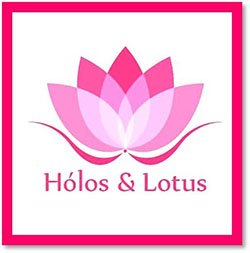Habilidades que te potencian|Skills that empower yuo

Antenoche, @emiliorios, columnista de la comunidad @beentrepreneur, subió un post titulado Lo que soy para emprender -Cualidades en Pensamiento de Poder- (ES/EN), en él nos presenta algunas de las cualidades- habilidades que como emprendedores es necesario potenciar. Te invito a que entres y lo leas.
Como coach-emprendedora este es un tema que me apasiona, pues más allá de las habilidades de organización, planificación, manejo efectivo del tiempo, entre tantas otras que requerimos como emprendedores, están, como un eje transversal, las habilidades del “yo soy”, que se manifiestan en cada acción que realizamos y que mientras más nos conocemos a nosotros mismos, más las podemos potenciar.
Son las llamadas habilidades blandas porque no tiene que ver, directamente, con el conocimiento en el área en que te desenvuelves (habilidades duras), sino con lo emocional, con la interrelación, con ese ser proactivo que tiene disposición para resolver situaciones y tomar de decisiones, en otras palabras no pertenecen al mundo de coeficiente intelectual sino al reino de la inteligencia emocional y/o a las tantas otras inteligencias existentes. Ilustremos con un ejemplo:
Hace más de dos meses, una de mis coachee, encontró el trabajo de sus sueños, para ello presentó una serie de pruebas de conocimientos en las que salió muy bien y obtuvo el cargo, con un periodo de prueba de dos meses. Al cumplir el primer mes recibió un material para autoevaluarse, dicho material no tocaba aspectos de conocimientos, sino aspectos “afectivos”: cómo se sentía en el lugar de trabajo, con sus compañeros, con sus superiores, que había aprendido en la dinámica laboral, en la relación con su superior y compañeros.
Es decir, en este primer mes la empresa fija su atención, no en los conocimientos, sino en el ambiente laboral, el trato entre las personas, el saber trabajar en equipo, en el manejo de las emociones, en la iniciativa para buscar alternativas de solución, en saberlas comunicar y otros aspectos relacionados.
Hablando con esta joven hay varias habilidades que resaltan y que son válidas tanto para el trabajo dependiente como el del emprendedor, he tomado dos para conversar sobre ellas: la comunicación y el pensamiento crítico.
Comunica. Como sabemos comunicar va más allá de la expresión verbal, hay todo un mundo de matices en la gestualidad, en el tono, en la intención que ayudan en este proceso y cuyo fin último es que el otro entienda y comprenda el mensaje que queremos transmitir, pero atención, no es responsabilidad del otro el comprender, sino de quien se expresa.
Eso me recuerda una vieja recomendación: No preguntes ¿Entendiste?, pregunta: ¿Me expliqué? Entonces el esfuerzo, al querer mejorar nuestra comunicación, es saber expresarnos mejor, ser asertivos, que nuestros clientes, por ejemplo, comprendan qué es lo que les estamos ofreciendo, en qué condiciones y qué pueden esperar.
La comunicación asertiva es uno de los pilares de la inteligencia emocional, de allí que todo lo que expresamos pasa por el filtro emocional por lo que saber manejar nuestras emociones al comunicar lograremos que esta sea más eficaz, que el otro entre en un proceso comunicativo donde el entendimiento sea la premisa clave.
Ahora bien, en el proceso de comunicación, por lo menos somos dos, y cuando te corresponde ser el receptor en el diálogo: la escucha atenta, la apertura mental y la intención deliberada de querer comprender se hace fundamental, además que es a través de este involucramiento que podemos tener insumos para detectar y mejorar tanto aspectos personales como profesionales, en cualquier área que desarrollemos.
Piensa críticamente. Recuerdo que a los diecisiete años, cuando ingresé al pedagógico para iniciar lo que sería mi carrera docente, una de las asignaturas obligatorias recibía el nombre de “Pensamiento Crítico”. Venía de terminar un bachillerato en humanidades y no recuerdo haber escuchado o leído esa expresión, así que llené de expectativas: ¿De qué se trata, qué es esto? Afirmando para mis adentros: pensamiento es pensamiento, ¿qué puedo aprender allí?
Pronto descubrí la respuesta. El profesor en la primera clase hizo las siguientes afirmaciones, con palabras similares a estas: Todo pensamiento está sujeto a cuestionamiento, no hay una verdad absoluta y es su deber como futuro docente, dudar de todo lo que se le presenta como verdad. A continuación indicó que sacásemos papel y lápiz, diciendo: comiencen a cuestionar estas afirmaciones.
Una vez terminada la actividad concluyó: este es el pensamiento crítico, analizar, cuestionar, dudar y fundamentar de manera razonable y objetiva. Quizás lo único cuestionable, hoy en día, de esa definición sea el concepto de objetividad, pues sabemos que toda interpretación es subjetiva y que nuestra percepción es mediada por las creencias, experiencias y el contexto donde nos desarrollamos.
Ahora bien, no deja de ser cierto que el pensamiento crítico es el que nos abre las puertas de la creatividad, de la innovación, nos permite salir de la zona de confort y buscar alternativas distintas a lo ya conocido.
Para el emprendedor, las preguntas: por qué, para qué y cómo, son herramientas para potenciarse, para crecer. Es en el cuestionamiento, en el no aceptar afirmaciones como verdades absolutas, que encontramos nuevos caminos, en otras palabras, el pensamiento crítico significa apropiarte de tu pensamiento y con ello salirte del modo automático que en última instancia es el que te permite crecer y avanzar.

In English

Last night, @emiliorios, @beentrepreneur community columnist, uploaded a post titled Lo que soy para emprender -Cualidades en Pensamiento de Poder- (ES/EN), in it he presents some of the qualities-skills that as entrepreneurs it is necessary to enhance. I invite you to enter and read it.
As a coach-entrepreneur this is a topic that I am passionate about, because beyond the skills of organization, planning, effective time management, among many others that we require as entrepreneurs, are, as a transversal axis, the skills of "I am", which are manifested in every action we perform and that the more we know ourselves, the more we can enhance them.
They are called soft skills because they do not have to do directly with knowledge in the area in which you develop, (hard skills), but with the emotional, with the interrelationship, with that proactive being who is willing to solve situations and make decisions, in other words, they do not belong to the world of IQ but to the realm of emotional intelligence and / or the many other existing intelligences. Let's illustrate with an example:
More than two months ago, one of my coachee, found the job of her dreams, for this she presented a series of knowledge tests in which she did very well and got the position, with a probationary period of two months. At the end of the first month she received a material for self-evaluation, this material did not touch on aspects of knowledge, but on "affective" aspects: how she felt in the workplace, with her colleagues, with her superiors, what she had learned in the work dynamics, in the relationship with her superior and colleagues.
In other words, in this first month the company focuses its attention, not on knowledge, but on the work environment, the way people treat each other, knowing how to work in a team, managing emotions, taking the initiative to seek alternative solutions, knowing how to communicate them and other related aspects.
Talking with this young woman, there are several skills that stand out and that are valid for both dependent and entrepreneurial work, I have taken two to talk about them: communication and critical thinking.
Communicate. As we know, communicating goes beyond verbal expression, there is a whole world of nuances in gestures, tone, intention that help in this process and whose ultimate goal is that the other understands and comprehends the message we want to convey, but be careful, it is not the responsibility of the other to understand, but of the one who expresses himself.
This reminds me of an old recommendation: Do not ask: Did you understand, ask: Did I explain myself? So the effort, when we want to improve our communication, is to know how to express ourselves better, to be assertive, so that our clients, for example, understand what we are offering them, under what conditions and what they can expect.
Assertive communication is one of the pillars of emotional intelligence, from there that everything we express goes through the emotional filter so knowing how to manage our emotions when communicating will make it more effective, that the other enters into a communicative process where understanding is the key premise.
Now, in the communication process, there are at least two of us, and when it is up to you to be the receiver in the dialogue: attentive listening, open-mindedness and the deliberate intention of wanting to understand becomes fundamental, besides it is through this involvement that we can have inputs to detect and improve both personal and professional aspects, in any area we develop.
Think critically. I remember when I was seventeen years old, when I entered the pedagogical school to start what would become my teaching career, one of the compulsory subjects was called "critical thinking". I had just finished a bachelor's degree in humanities and I do not remember having heard or read that expression, so I filled with expectations: What is it about, what is this? Affirming to myself: thinking is thinking, what can I learn there?
I soon discovered the answer. The teacher in the first class made the following statements, with words similar to these: All thought is subject to questioning, there is no absolute truth and it is your duty as a future teacher, to doubt everything that is presented to you as truth. He then asked us to take out paper and pencil, saying: begin to question these statements.
Once the activity was over, he concluded: this is critical thinking, analyzing, questioning, doubting and substantiating in a reasonable and objective manner. Perhaps the only questionable part of this definition today is the concept of objectivity, since we know that all interpretation is subjective and that our perception is mediated by beliefs, experiences and the context in which we develop.
However, it is true that critical thinking is what opens the doors to creativity, innovation, allows us to leave our comfort zone and look for alternatives to what we already know.
For the entrepreneur, the questions: why, what for and how, are tools for empowerment, for growth. It is in questioning, in not accepting statements as absolute truths, that we find new paths, in other words, critical thinking means taking ownership of your thinking and thus getting out of the automatic mode that ultimately is what allows you to grow and move forward.

Translated with www.DeepL.com/Translator (free version)
Fuente se Imágenes: Portada trabajada en Canva



MIS REDES SOCIALES




 Be Entrepreneur
Be Entrepreneur


Qué cualidad tan importante, seas o no creador de contenido, es la capacidad de comunicarnos.
Cada situación en la vida la necesita.
Muchas gracias por este post, querida @damarysvibra
@tipu curate 8
Upvoted 👌 (Mana: 0/75) Liquid rewards.
Communication, critical thinking and emotion control is very vital in any business either as a worker or an entrepreneur, they are positive steps to growth.